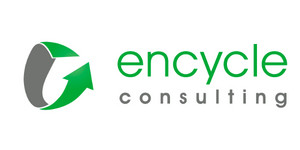Markets for recycled organic products made from food and garden organics
Jurisdiction: International
Food waste occurs from the farm to restaurants to households. When nutrients and carbon are buried in landfill, there is significant impact on the environment and public health through greenhouse gas emissions, pollution, biodiversity loss and resource depletion. How might we support the case for processing food waste into recycled organic products?
Our local councils are responsible for organising collection and treatment of waste and recycling after we put it in our kerbside bins. Local councils are rolling out food and garden organic (FOGO) collections to process this waste into recycled organic (RO) products like composts, mulches and soil conditioners. These RO products can be used for example to enhance our nutrient-poor arable soils for growing crops.
Using data and IT-based solutions preferably from Western Australia, consider the following questions to build a case for supporting the rollout of the FOGO system:
• How can we identify the markets for FOGO-derived RO products?
• Does it matter to the market what RO products are made from?
• What are the likely community perceptions about using these types of RO products?
• What could be the potential size of the market for these RO products?
• What are the challenges and barriers to developing markets in Western Australia?
Developing markets for RO products beyond the ‘local government parks & gardens’ sector in Western Australia may require product specific ingredients and application. For example, farmers may require an assessment of soil and cropping regime to determine the application of RO products, level of nutrients and trace elements required.
Additional Information:
According to the Australian Bureau of Statistics, waste is Australia’s most rapidly increasing environmental and economic metric. The National Food Waste Strategy estimates that over 5.3 million tonnes of food that is intended for human consumption is wasted from households, commercial and industrial entities each year.
As outlined in the Waste Avoidance and Resource Recovery Strategy 2030, West Australians generate more waste per capita than people in other states and territories, and we have the second lowest rate of recovering resources from waste. Local government waste audit data has shown that FOGO can comprise up to 50% of household waste that we dispose to municipal solid waste (i.e. the red lidded bin).
The Better Bins Plus: Go FOGO program is an initiative of the Government of Western Australia, delivered by the Waste Authority, supporting local governments to provide better practice three bin kerbside collection systems with a separate FOGO service (i.e. the green lidded bin).
Entry: Challenge entry is available to all teams in Competition 2020.
